Gardening tips to help maintain good health
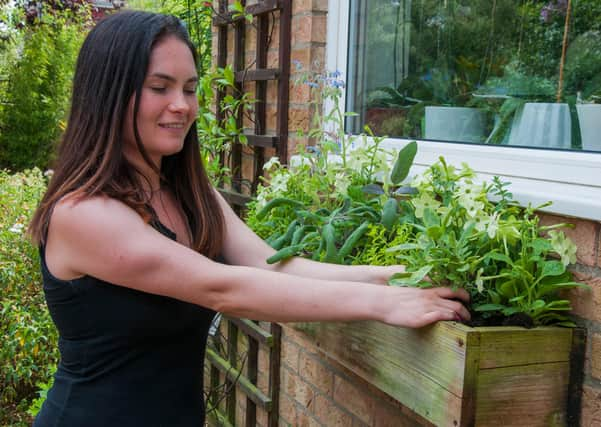

This means not going out unless for food and once a day for exercise but it is also recognised that there is a need to maintain good mental health.
One way to do this is gardening, whether it inside, on a balcony or yard, or in the garden. There are many ways to enjoy this past-time but be mindful not to create too much waste as some local authorities have put in place restrictions.
Advertisement
Hide AdAdvertisement
Hide AdHere Leigh Hunt, Principal Horticultural Advisor at the RHS, said growing your own fruit and vegetables is a good place to start.
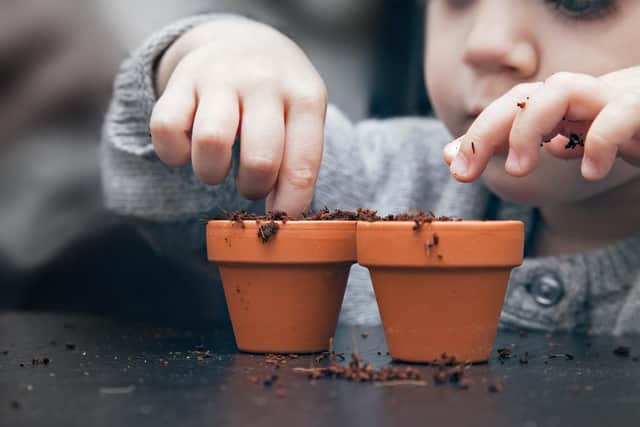

She said: “There is more interest in starting to grow at home - and we are getting more enquiries from members accessing our gardening advice service about vegetable growing.
“It’s a great thing to do with everyone at home, perhaps more time on our hands, and the difficulty of getting to the shops.”
The RHS offers lots more advice on the RHS website: https://www.rhs.org.uk/advice/beginners-guide/vegetable-basics
Advertisement
Hide AdAdvertisement
Hide AdAlistair Griffiths, Director Science at the RHS, said: “There is an ever-increasing body of scientific evidence showing that a regular dose of gardening can improve both your mental and physical wellbeing.
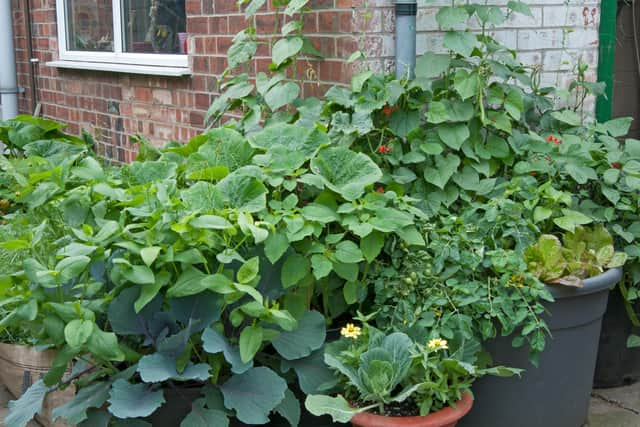

“Studies now provide robust evidence for the positive physical and mental effects of gardening on health.
“In fact, there are very few, if any, other activities that can achieve all of the things that gardening can – in particular, the measurable impact on active lifestyles and mental wellbeing, such as reductions in depression, anxiety, and body mass index, as well as increases in life satisfaction and quality of life.”
Here are some grow your own tips from Guy Barter, Chief Horticulturalist at the RHS:
1. Vegetables
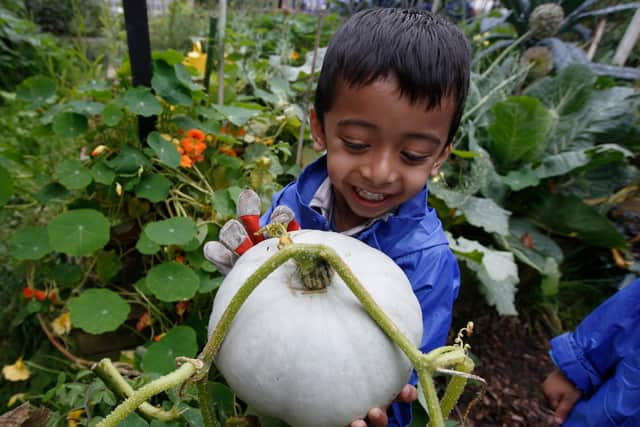

How to:
Advertisement
Hide AdAdvertisement
Hide AdVegetables are easy to grow once they have germinated or been planted
2. Situation
Find the right place:
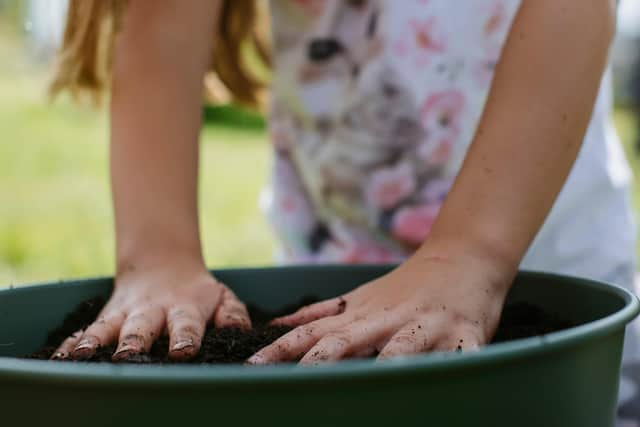

A sunny site is ideal - only a few crops will produce much in shade.
3. Shade lovers
Shade tolerant crops include beetroot, chard, peas, runner beans, spinach and salads.
4. Soil
Soil is ideal:
Soil is free and needs little looking after. However if the plot in question doesn’t even support weeds it might be unsuitable.
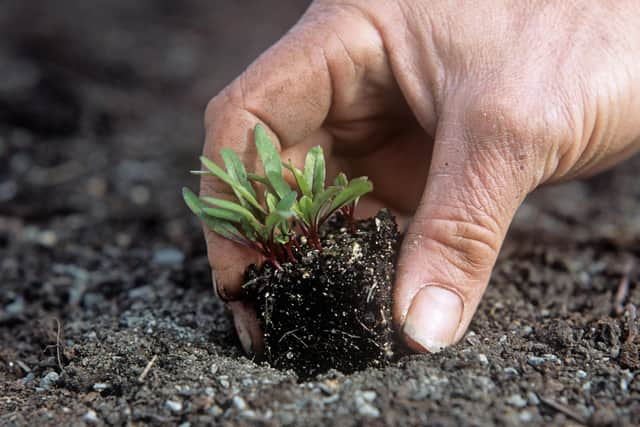

5. Going potty
Growbags or containers
Advertisement
Hide AdAdvertisement
Hide AdGrowbags or containers filled with potting compost will give good crops where soil is not an option, but they will need more attention.
6. Clear way
Weeding
Clear an area of weeds. Digging is the simplest way to do this, but in many cases no-digging is preferred and after weeds removed not further cultivation is needed with a light mulch of organic matter such as garden compost suppressing weeds
7. Compost
Feeding growth
Ideally add garden compost or rotted manure (not carrots or parsnips) and fertiliser to improve the soil.
8. Seeds
Tastes to suit
Sow seeds of whatever you like to eat. Crops that taste best freshly gathered are many peoples favourites; salads, tomatoes, new potatoes, chard and other leaf beets for example. Broccoli and cabbage family plants suffer from pests and diseases and are best left to farmers.
9. Cost
Seeds expense
Advertisement
Hide AdAdvertisement
Hide AdSome seeds are expensive, especially hybrids. Bargain seeds of vegetables widely offered in supermarkets for example must meet the same legal standards as expensive ones and give a very acceptable crop
10. Cultivating
Loving care
Seeds need warmth, moisture, light and air most easily provided by sowing in pots of multipurpose potting media, covering very lightly with sieved compost and watering ideally from below by standing pots in a shallow dish of water.
11. Outdoors
Best plants
Sowing outdoors is best for peas and beans as many plants are needed for a decent serving (runner beans are the exception). Carrots and parsnips must be sown (and covered with fleece or insect proof mesh to fend off carrot fly) where they are to grow for usable roots.
12. Sowing
Technical bit
Rake moist but not soggy soil into finely divided state, make shallow grooves (drills) with the corner of your rake deep enough for the seeds to be covered when the soil is gently raked back to fill the drill. This is typically 10-15mm. Water dry soil the day before sowing to allow water to drain.
13. Spacing
Create room
Advertisement
Hide AdAdvertisement
Hide AdLeave a finger width between small seeds and two fingers between peas and a hands width between broad beans.
15. Thin out
Don’t crowd plants
Thin to final spacings (see packet) when seedlings big enough to handle perhaps transplanting some to fill in gaps. Crowded plants crop poorly.
16. Harvest
On your way
Congratulations you are on your way to your first harvest. Water heavily every 14 days if drought strikes and keep weeds down. Pests and diseases should not cause too much damage.
The RHS Campaign for School Gardening has also posted the ideas for families to try at home. Go to: https://schoolgardening.rhs.org.uk/News/News-results/National/2020/March/Bringing-the-sunshine-inside
Advertisement
Hide AdAdvertisement
Hide AdThe RHS closed all of its four gardens from Sunday March 22 in a bid to stop the spread of coronavirus.
RHS Garden Wisley, RHS Garden Hyde Hall, RHS Garden Rosemoor and RHS Harlow Carr, including shops and cafes, closed with immediate effect until further notice.
It is still running its online plant shop, rhsplants.co.uk and continues to offer a wide selection of edible and ornamental plants.
RHS advisors are working from home and will continue to answer all RHS member gardening questions, and The Garden magazine will continue to be published.
Advertisement
Hide AdAdvertisement
Hide AdA spokesman for the organisation said: “As so many of us will be spending more time at home gardening, we hope these valuable services will be of benefit to our members.
“We will also be sharing pictures and films of our gardens online and on social media so that everyone can stay connected and enjoy the beauty of nature and our gardens from afar.
“A reduced level of staff from our horticulture teams will continue to look after our living collections of world class plants within our gardens.”